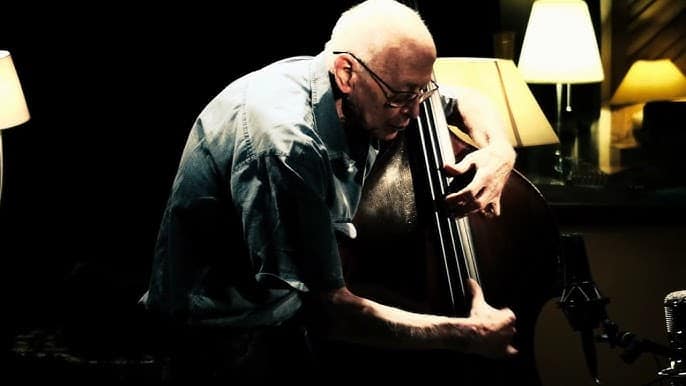New threat to musical instruments entering the USA
mainA federal regulation on ivory imports came into force on February 25. It applies to ivory used in musical instruments.
Worked African elephant ivory imported as part of a musical instrument will continue to be allowed provided the worked ivory was legally acquired prior to February 26, 1976; the worked elephant ivory has not subsequently been transferred from one person to another person in pursuit of financial gain or profit; and the item is accompanied by a valid CITES musical instrument passport.
What this means is that every string player who has a small piece of ivory in their bow will need to get a passport for each instrument and bow. Every time you buy a new bow, you will need to register it and pay a $75 fee.
Here are some basic guidelines. It’s getting tough out there. They’ve found another way to get you.
UPDATE: WE have received the following advisory from the League of American Orchestras:
If a musician purchased an instrument containing African Elephant ivory after 1976, they are not allowed to bring it into the U.S. Even if it is certified, and even if they are simply returning from an international performance.
Furthermore:
– The passport will only be good for up to three years, so it will need to be renewed.
– The certification requirement is not a new one. They have long been required to obtain a certification before travelling internationally.
– The existing certification requirement is likely to now be enforced much more strictly.
Our website has all the details.






For purposes of international travel, wouldn’t it be enough to carry a copy of an appraisal, showing that you owned it prior to your travel? These regulations only supply to buying and selling, don’t they? (I do know there’s scary customs language, though, saying that every time you bring your modern foreign-made instrument into the US, you could be required to pay customs, but I’ve never had a problem.) Very interesting info, thanks for posting.
No, this is a new zero-tolerance law. It’s not a matter of paying duty. The ivory must be certified as being pre-1976. Even if the bow is antique (over 100 years old), if the ivory has been repaired, you need a certificate for that new ivory.
And I wouldn’t expect the customs man to be able to tell the difference between elephant ivory (forbidden) and mammoth ivory (permitted). I wouldn’t even count on them being able to differentiate ivory from bone.
Technically, this restriction also applies to all sales of items containing elephant ivory. So a lot of bows just became unsaleable, legally.
(Permitted: “Intrastate commerce (sale within a state) of bona fide antiques or ivory that the seller can demonstrate was lawfully imported prior to listing in CITES Appendix I (1990 for African elephant; 1975 for Asian elephant) or under a CITES pre-Convention certificate or other exemption document.” – this means that unless you have the paperwork, sale is NOT permitted.)
I think your read on this is backwards. This is really helpful to those of us that have ivory on our instruments. I used to think that I just couldn’t take my bow out of the country, but these provisions say that you can get a “passport” for your equipment and safely travel with that equipment to other nations (provided those nations recognize the passport).
Customs officials, in my long experience, vary from intelligent & civilized to power-drunk bullying goons. At this point, when I travel, it’s all carbon-fiber, bows & instrument (Luis &Clark). If I need anything fancier I borrow or rent while overseas. Of course if I were a major soloist or chamber-musician this wouldn’t work. In basically Pops-type orchestras it is not a problem.
Does the 1976 date apply to the fabrication of the bow or to the purchase of the bow?
This is no laughing matter; it is quite serious. The Obama administration has decided to clamp down on elephant poaching (rightfully) with a shotgun, even if, as most poached ivory goes to Asia, it will have little practical effect. However for us, it will have a HUGE effect.
I have no experience with CITES certification, but if you do not have a pre-1976 bill of sale, you would have to prove that it was manufactured before that date. I am sure that certification is not easy.
Bottom line: do not sell, buy, import or export ivory (piano keys, tips and some frogs of bows, pegs, nuts, tailpieces, etc.) without certification, or you risk confiscation and even detention (as I understand the rules, this would be a felony).
You can have the ivory on the tip of your bow replaced with plastic by a violin maker. And that is the ultimate irony: if you want to sell a piano with ivory keys, replace the keys with plastic and store the keys in a box in the basement – that is no problem.
Replacing ivory piano keys with plastic significantly drops the value of pianos (and adds an added cost to the sale). When instruments are sold, people want them as close to original condition as possible. If you want to sell a piano, why would you want to keep the keys? When an instrument is in perfectly good condition, no one in his right mind would want to make unnecessary replacements of keys, key inserts (saxophones, trumpets), stop knobs (organs), … When a proposed regulation will have no practical effect, it is unnecessary and should not pass (which is why this is via executive order rather than through congress).
http://www.washingtonpost.com/national/health-science/new-rules-will-ban-import-and-export-of-ivory-and-make-it-harder-than-ever-to-sell/2014/02/11/de666c5a-934e-11e3-84e1-27626c5ef5fb_story.html
This regulation is in place from Febr. 11th. I had alerted Norman then, but evidently he did not see fit to announce it.
Be sure to read the link Norman provided: http://americanorchestras.org/advocacy-government/travel-with-instruments/endangered-species-material/ivory-ban-impact-on-orchestras.html. According to this, WE have to have purchased the bow before 1976, regardless of when it was made. Obviously some things will slip through, but without the right documents, many people will be in a difficult situation. As the site points out, it is very difficult to tell one type of ivory from another.
And what about the fact that most modern bows have tips made of mammoth ivory? Is the TSA even going to be smart enough to know that or believe it when we tell them that, or will they just confiscate our bows? This is ridiculous.
I’m a musician myself and though not a string player I understand how this will complicate travel with instruments, BUT as someone who loves animals I believe that this crackdown was necessary. Elephants are being slaughtered for their tusks at an alarming rate. It would be a great tragedy if they became extinct, not to mention the pain and suffering of individual elephants and their families. Surely we can find another material for our musical instruments.
The problem, as so often pertains to government action, is the law of unintended consequences. The laws against ivory make it a black market item and so the price rises dramatically. With so much extra money at stake, the poachers have even more incentive to wreak their havoc on the herds. So it would appear that this is the wrong approach. The correct one, whatever it may be, would likely be much more difficult and beyond the courage of the average politician.
Where’s the musicians union in all of this?
Feckless?
It’s worth noting that pernambuco wood is also on the list of restricted materials that require a “passport”. While this doesn’t fall under the new, stricter scrutiny regarding ivory, we all need to be careful and carry appropriate documentation at all times when travelling.
Trying to destroy our instruments while not being able to stop those criminals from killing elephants? Are you kiding me?
This is a bit ridiculous. It’s like the laws gun owners have had to deal with for the last 10+ years in terms of banning certain features or items from sale/import/what-not. Doesn’t solve any problems in terms of crime, but makes citizens run through hoops to avoid being felons.
Seems most of these regulations are set-up as safety bumpers to catch criminals on technical violations where the primary rules may be worked around or avoided… they can’t stop poaching so maybe put someone away on import charges. But is that ability for law enforcement worth it?
Gee, it kinda sounds like when someone has to pull out their birth certificate and driver’s license and passport and social security card just to prove they were born in the US so they can vote. Not fans of documentation now, are ya?
As a pianist and cellist, I sympathize with musicians, but I sympathize with elephants more.